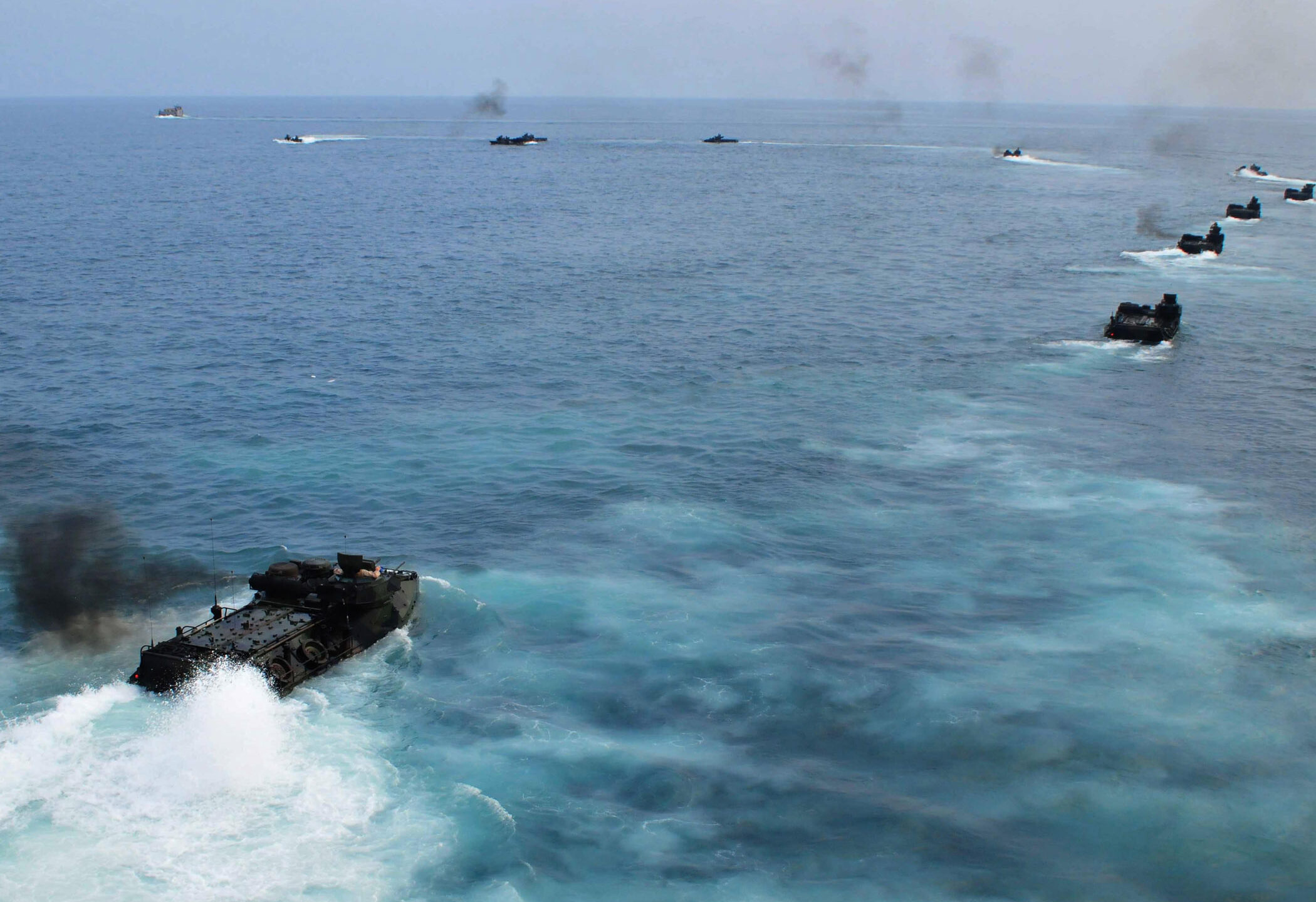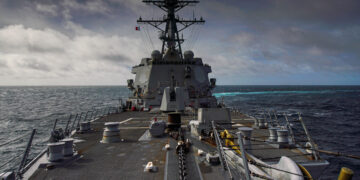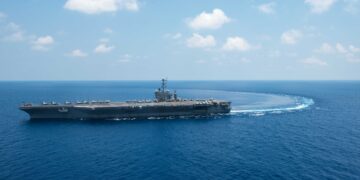September 10, 2024
Are tensions in the South China Sea at risk of explosion?

While the world’s attention largely remains fixated on the wars in Ukraine and Gaza, U.S. officials across the national security apparatus also have another part of the globe on their minds: the South China Sea. This vast expanse of islands, reefs, rocks and atolls is the site of contested claims among multiple Asian countries, and its maritime boundaries are about as clear as an inkblot. China, Asia’s paramount great power, has claimed about 90% of the waters for itself, and it is using its large coast to press those claims more aggressively.
Typically, China’s smaller Asian neighbors choose to register their disapproval in public statements and work to brush the long-running disputes under the rug. The last thing Vietnam, Indonesia, Brunei and Malaysia want is a dog fight with a superior military adversary—better to settle the differences or mitigate the fallout to ensure the parties don’t stumble into a conflict.
The Philippines, however, has taken a more brash approach. Instead of de-facto permitting China to run roughshod over the seas, Manila under President Ferdinand Marcos Jr. is in essence giving Beijing the middle finger by sailing throughout its own exclusive economic zone, waters that extend 200 nautical miles from its shoreline. In terms of international law, this is a legitimate response. But in terms of managing the South China Sea dispute with China as peacefully as possible, the Philippines’ policy runs the risk of forcing Beijing to respond even more impetuously, potentially causing repeated clashes to mushroom into a conflict nobody wants.
Such a contingency would have extreme consequences for the United States, which is a treaty ally of the Philippines and has made clear that any attacks against Philippine armed forces, public vessels or aircraft in the South China Sea would compel Washington and Manila to invoke Article 4 of the Mutual Defense Treaty. That clause, while a bit ambiguous, leaves open the option of the U.S. taking military action to come to Manila’s defense. Needless to say, a scenario in which the world’s two largest economic powers—the U.S. and China account for 42% of the globe’s gross domestic product—are shooting at each other over a bunch of uninhabited reefs is equally parts calamitous and absurd.
More on Asia

Featuring Lyle Goldstein
November 14, 2025

Featuring Jennifer Kavanagh
November 5, 2025

Featuring Lyle Goldstein
November 4, 2025






